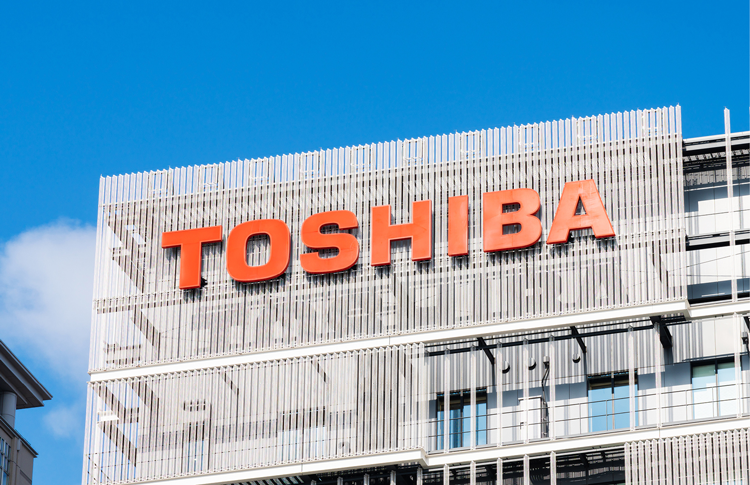
Anyone who thought shareholder activism would never take root in Japan had a rude awakening at Toshiba’s extraordinary general meeting last month. An investor revolt on March 18 saw Singapore-based activist fund Effissimo Capital Management, the largest shareholder of the Japanese behemoth, force an independent investigation over irregularities it says occurred at Toshiba’s general shareholder meetings in 2020. It was a watershed moment for Japan, Inc. The adoption of the activists’ proposal with the backing of nearly 58% of voters sent shock waves through boardrooms across the country. It also sent a clear message that traditional Japanese corporations are not immune to the kind of public dressing-down that their US and European counterparts have long grown accustomed to.
Japan’s system of corporate governance has traditionally consisted of shareholders largely serving as silent, deferential partners to the board. But investors have been growing increasingly confident and are proving more and more willing to publicly challenge corporate managers’ decision-making.
And while activist investors are much more common in the United States and Europe, their shareholdings have been steadily increasing in Asia, with Japan’s capital markets becoming an important destination for such funds.
It may be tempting to think that Toshiba’s showdown with its investors is something of an anomaly. Some 63 percent of the firm’s shareholders are foreign investors and there has been a long-running feud between the management board and shareholders following an accounting scandal in 2015. Certainly, Effissimo’s successful push for an investigation may have been helped by this lingering sense of mistrust.
Nevertheless, the fact that one of the largest conglomerates in Japan could be brought to heel is likely to encourage further activist forays into the Japanese capital markets, leading to additional skirmishes between investors and boardrooms.
Longstanding structural factors also increase the likelihood that Toshiba’s experience will become the rule rather than the exception. Japanese companies’ operational and management style provides a rich opportunity for activist funds seeking to pressure firms to iron out capital inefficiencies. Corporate governance changes and capital market reforms over the past decade have also fed this trend, in particular revisions to rules governing cross-shareholding and requirements for institutional investors to disclose their voting records only further opening the door to activist funds.
Also, whereas recently as a decade ago, activist share-holders demands were seen as troublesome or theatrical, their proposals are increasingly viewed as reasonable, and even responsible. Moreover, the growing adoption of ESG principles by companies, as well as a conceptual shift from shareholder to stakeholder-led capitalism, have helped facilitate this shift in perception. As activists have changed, so too has the market’s perception of them. Activist funds have increasingly been recruiting top-level talent from consulting firms and investment banks. In some cases, activists are considered to be among the soundest market actors, increasing corporate and shareholder value.
Despite these shifting perceptions, Japanese business culture remains conservative and the traditional view of activist funds as driven by short-termism and opportunistic profit-making is likely to endure at many firms. This more nuanced landscape only makes the job of board directors more complex and requires a more strategic response than may once have been the case.
With that in mind, boards would be well advised to review their corporate governance structures, identify their vulnerabilities through due diligence on all current and prospective board members, and engage more closely with institutional investors. Further, they should not forget the age-old mantra of ‘know your enemy.’
日本企業に向けられた警告―東芝事案が物語る株主アクティビズムのニューノーマル
株主アクティビズムが日本に定着することなどまずないだろう――3月18日の東芝の臨時株主総会における株主の勝利は、こうした意見に対して「不都合な現実」を突きつける結果となった。
日本の企業統治システムは、伝統的にステークホルダ ー間の相互利益と良好な関係性を重視してきた。そのなかで株主はいわゆる「物言わぬ」存在として認識され、実際に取締役会を牽制する存在としては認識されてこなかった。しかしながら、株主の力は日本市場において相対的に高まってきており、株主が取締役会の意思決定に対するチャレンジ姿勢を明確にするケースが増えてきた。
約63%が外国人株主であるという特殊な株主構成に加え、2015年の東芝不正会計に伴う長期の不信を踏まえると、東芝のケースは例外的な事例なのではないかとも思いたくなる。エフィッシモの提案が可決されたのは、実際にこうした情況が背景にあり、それによって多くの株主が賛成にまわる判断をしたのかもしれない。
しかしながら、日本を代表する伝統的な大企業においてこのようなかたちで株主に軍配が上がった点から目を背けるわけにはいかない。この株主の勝利は間違いなく日本市場におけるアクティビズムの流れを後押しするものとなる。日本市場を狙っているアクティビスト・フ ァンドにとって、東芝のケースは今後の彼らの成功を強く予感させるものとなった。同時に本件は、今後、取締役会と株主との間における様々な局面での鍔迫り合いが増えることを意味する。東芝のケースを例外とすることは、言い換えるなら、日本における株主資本主義のあり方とアクティビズムに関する大きなトレンドを見失うことに他ならない。
思い返せば、2000年代に村上ファンドが登場した際、日本の当局とメディアはそれを欧米的な株主資本主義を追う「ハイエナ」の一例に他ならないと糾弾し、市場から排除した。エフィッシモの創業者3名は、いずれも村上ファンド出身である。あれから10年、皮肉なことにアクティビズムに対する当時のような強いアレルギー反応は薄れつつある。
今や彼らの提案はより経済合理性に則っており且つ責任の伴うものになりつつある点を見逃してはならない。これにESGと呼ばれる、環境・社会・ガバナンス要素も考慮した社会的責任投資が加わった。
昨今、アクティビスト・ファンドには、戦略コンサルティング・ファームや投資銀行などのトップ企業エリート層からの人材が集まってきている。こうした人材層の変化が功を奏してか、アクティビストは単なる市場の問題児から、もちろん常にではないにせよ、企業価値と株主価値を増大させる「理にかなったマーケット・アクター」としての存在感を一部において強めている。
しかしながら、このような「進化」にも関わらず、アクティビストは引き続き短期主義と機会主義に動機付けられたアクターとして警戒され続けることになるだろう。このようなニュアンスに富んだ情況のなかで、取締役会にはこれまで以上に複雑で戦略的な株主対応が求められることになる。
アクティビズムが日本市場に本当に根付くかについては、結局のところ、今後の動向を注視する他はないだろう。しかしながら、日本の上場企業における外国人持株比率の上昇と機関投資家のプレゼンスの高まりがアクティビズムを後押しすると考えるのが妥当だ。こうした流れは、今までとは異なるかたちで株主と向かい合う必要があることを日本企業に強く認識させるものである。
日本企業の取締役会は東芝のケースを奇貨として企業統治改革の更なる推進と自らの企業統治の脆弱性を明らかにすること、そして同時に機関投資家とのエンゲ ージメントを高度化することに最大限の努力を行うべきだろう。その上で、「敵を知る」という長年の知恵を忘れずに肝に銘じておけば良い。実際にアクティビストの公開ターゲットになる前に、企業は自らが直面し得る状況やリスクを洗い出し、戦略的に認識しておく必要がある。そのためには、自らをターゲットとし得るアクティビストの投資スタイル、投資のトラックレコードと戦術、そして企業買収に向かう時の行動パターンまで、インテリジェンスに値する情報を常日頃より継続的に幅広く収集しておく必要があるだろう。


